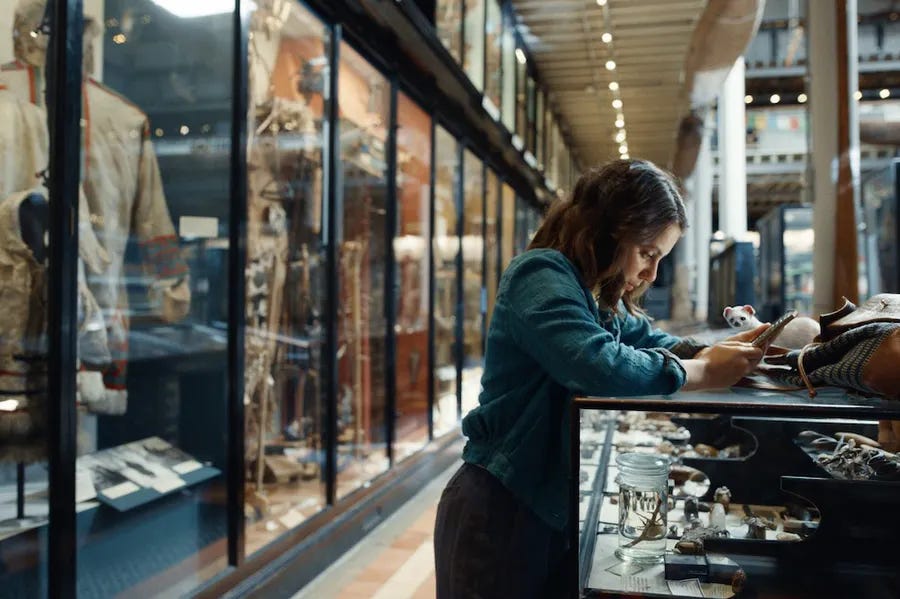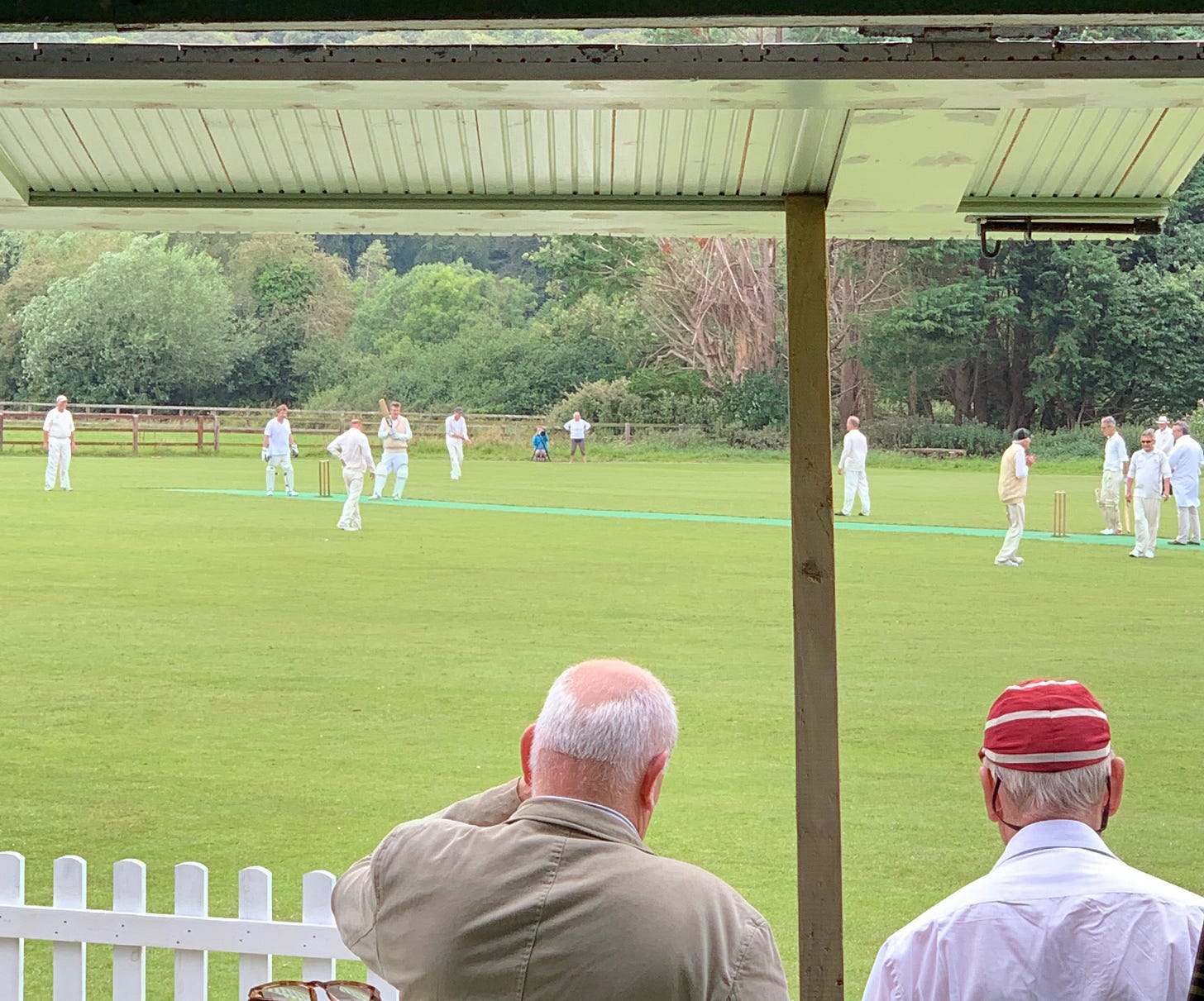How woke is your jargon?
A strange collection of words from a museum boss gets us thinking about clarity in language – and why people sometimes choose to avoid it

This morning, a Whatsapp group I’m on lit up when my friend Damien posted this:
From the Oxford Museum of Anthropology. ‘Laura (the director) strives to develop a more equitable decolonised praxis in museums including issues around shared and negotiated authority; restitution, reconciliation and redress and the queering of exclusionary binaries and boundaries with relation to social justice and inclusion’.
‘Intellectually dishonest wokery,’ said someone on the group. ‘Bollocks,’ said another, a bit more succinctly. ‘Not sure anyone should comment until it has been translated, warned a third. ‘Is there an app?”
And: ‘I am very woke but this explains why so many regard woke with contempt’.
Now, I love a good old barney about wokeness, wokery, whatever as much as the next human negotiating their (preferred pronoun) way through the treacherous linguistic waters of the 21st century culture wars.
But not this time. My fellow Whatsappers are missing the point.
Laura is not doing anything new or especially outrageous with the English language here. She is writing the way groups of non-woke specialists the world over are writing right now – and have been doing for years. They are using language and grammar to establish their membership of a group and – more importantly – exclude those who aren’t.
Management consultants do it all the time. So do NGOs, engineers, data scientists, even advertising executives and journalists. Writers on grammar? Absolutely. Watch me drop in a couple of cracking technical terms later in this piece.
The words we use are encrypted signals destined for people like us.
My Whatsapp friends, all male, middle-aged (and all, as it happens, cricketers) are emphatically not people like Laura, nor are they like Laura’s colleagues, students and collaborators. They are not the kind of people who are likely to offer Laura her next job, attend her talks or sit on the same committees discussing contemporary issues in anthropology and museum curation. So it really doesn’t matter what they think of phrases like ‘develop(ing) a more equitable decolonised praxis’.
But does it matter, period? Should we care whether a specialist like Laura uses a group of words that send out special signals to a concentrated group of people who are greatly concerned with some big issues facing museums, such as their white, colonial legacy and the gender and politics of the people who first donated funds and objects?
Well, it does matter, precisely because people are writing like Laura everywhere, in reports, papers, CVs, even articles.
And the way they write is a nuisance.
Sentences like this demand time and effort from the reader to unpick what they mean. I think that’s a bit rude. More: what they mean to say is sapped of energy and clarity by the means they choose to say it.
Laura starts off okay. ‘Laura strives to develop…’ Fine. We have a subject followed immediately (as it should be in any proper, economical English sentence) by the verb. She gives us two verbs, in fact, which is perhaps a sign of darker times to come. But at this stage, we can perhaps forgive the ‘strive’ and ‘develop’. There is humility here: she has not completely cracked her brief yet – how many of us have? But she is working wholeheartedly on it.
But there follows a relentless pounding of nouns and adjectives follows that leaves me struggling to hear myself think.
A quick digression. If you are learning Spanish, which I have been, ineffectively, for years, you’re told that you are only allowed one stressed syllable per sentence: TENgo hambre – I am hungry. I would like to appropriate that rule for corporate, official and academic English. From now on, you are only allowed to stress one noun and one adjective in each sentence.
Because I don’t know where to look when I read Laura’s words. What’s important? The praxis, the authority, the issues, the restitution, the reconciliation, the redress, the queering, the boundaries, the social justice, the inclusion? All those nouns sound weighty and sonorous (though I had to look up ‘praxis’). All are worthy of – well, respect in their own right. But when they are all held up like placards in the same short syntactical space, I feel cowed, intimidated and curiously uninformed.
She is not so prolific with her adjectives, but ‘more equitable’ (you’ve modified an absolute adjective there, Laura, but let’s move on) jostles for attention with shared and negotiated, both of which require the reader to stop and think a bit.
By the end of the paragraph, I am lost somewhere between an exclusionary binary and an inclusive (why the different suffix?)...something...which relates to queering, social justice, or both.
It isn’t only middle-aged male cricketers who get anxious when people get talking about inclusivity and binary/non-binary views of the world. Laura’s language is a coping mechanism: it’s hard to pin down exactly what she thinks about these ideas – just that she is thinking about them.
Okay, okay...
There we go again. Lecturing people on grammar. Pushing for a kind of written English that the University of Hull calls "homogenous, North European, white, male, and elite’. We have owned up to our anxieties about this before.
But I can’t shift the feeling that it’s Laura’s English that’s guilty of elitism, even if she can be absolved of the other sins in the Hull Litany. These words are not meant to be quickly and easily understood. They demand a high degree of familiarity with fashionable ideas. They are very exclusive – exclusionary? – indeed.
How to write with clarity
There’s a Forthwrite course that’s dedicated to helping people and organisations cut down that excess verbiage and get their messages over with less fuss and more impact. More details here.
Let’s end with a provocative suggestion from Susan Sontag…
Think with words, not with ideas.




